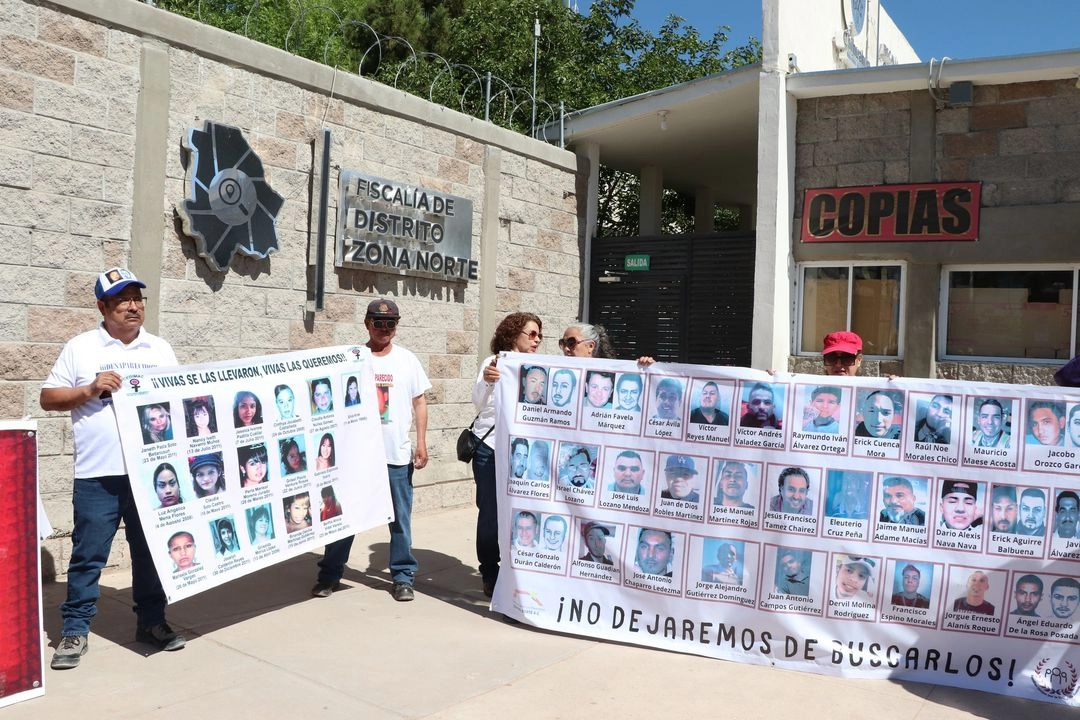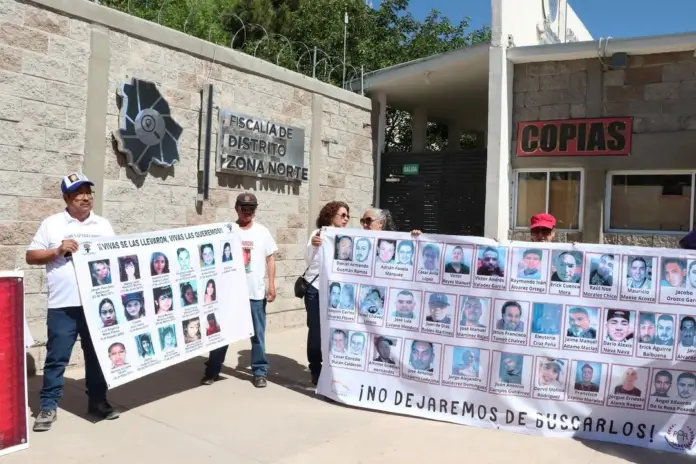Women searching for their missing children in Ciudad Juárez, along with activists from civil society organizations, commemorated Mother’s Day this Friday with a symbolic closure of the Chihuahua State Attorney General’s Office (FGE), located on the Juan Gabriel Highway.
They placed yellow security tape and a banner with the phrase: “Closed. For lack of justice,” as well as posters with the names and photographs of their missing children, and blocked the entrance to the building while shouting slogans.
“We’ve protested, we’ve conducted searches, and we haven’t received any answers, nor any progress or any clues from the prosecutor’s office about where to look for them. We have to move if we want to know anything about our children,” denounced Patricia García Rodríguez, mother of Jacobo Orozco Rodríguez, who disappeared on November 10, 2014.
“This year we’re not marching, and instead we’ve decided to close this prosecutor’s office due to the lack of justice, because we’re also angry, and we want to show that to the authorities. We want them to see how strong and powerful the love of searching mothers is, and that we mothers don’t give up.”
Carla Palacios Flores, a lawyer with the Paso del Norte Human Rights Center, a collective dedicated to searching for missing persons in Ciudad Juárez, reported that there are 4,515 missing persons in the state of Chihuahua, a figure that corresponds to the investigation files open by the FGE (Federal Attorney General’s Office), of which 1,118 are in the municipality of Juárez. “So far this year, 2025, 44 new cases of disappearance have been recorded.”
She denounced that mothers are re-victimized by the institutional violence perpetrated by prosecutors. They minimize disappearances and fail to investigate. Furthermore, all three levels of government—including municipal police, the municipal DIF (National Institute of Family and Family Development), and federal authorities—fail to address the crime of forced disappearance, as well as to offer support to indirect victims, the mothers of the disappeared.
“The treatment they received from prosecutors is another wound that has not healed, one that continues to fester. Every mother has a testimony of pain that deserves to be heard and denounced.”
The director of the Center for the Comprehensive Development of Women, A.C. (Cedimac), Ivonne Mendoza Salazar, demanded that the FGE, the state government, and the state Congress legislate a state law on forced disappearances, harmonize search protocols that guarantee the location of a person alive, provide more public prosecutors and investigative police officers to handle the cases, and provide comprehensive care to families, who are considered secondary victims of the crime.

Source: jornada




